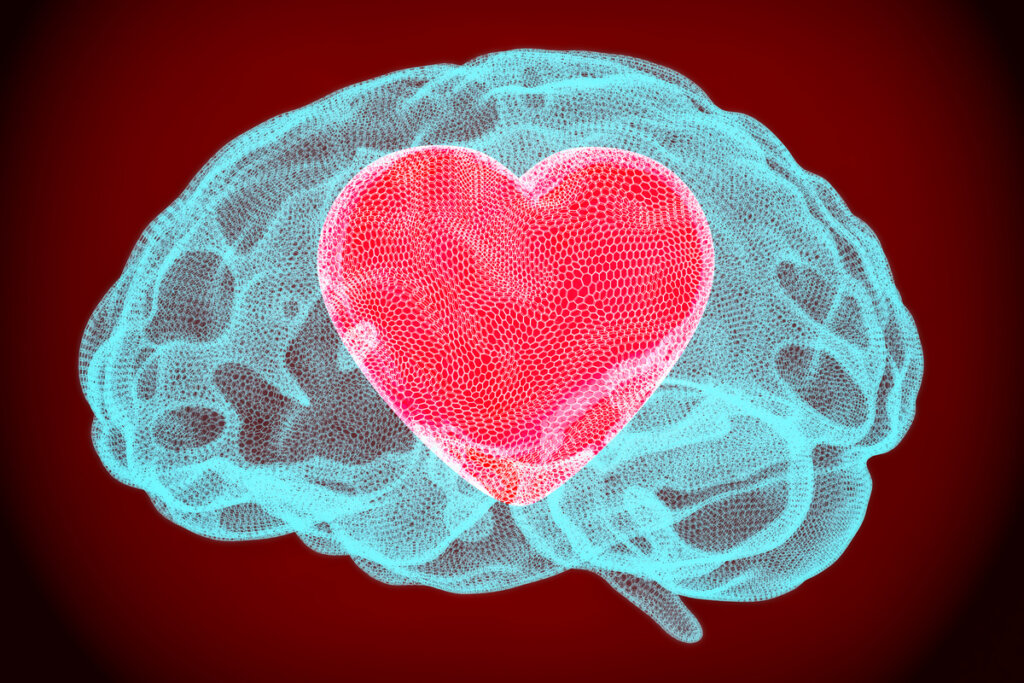If You're Curious, You'll Enjoy Love More


Written and verified by the psychologist Valeria Sabater
Curiosity is defined as a strong desire to learn or know. You know what it’s like to be curious. In fact, it’s often an irresistible feeling. However, you might not be aware of the relationship that curiosity has with love. In fact, research suggests that curious people achieve intimacy in their relationships sooner.
How could this be? How can curiosity be linked with finding love and keeping it for longer? It seems that the inclination and extrinsic motivation to hoard knowledge makes us more open, sensitive, and oriented toward interpersonal connection.
We might say that human beings are curious by nature. Therefore, we should all be successful in the field of emotional relationships. However, the reality is quite different.
In fact, although we all come into the world as curious beings, eager to treasure new experiences and knowledge, over time, many of us develop more rigid mindsets and have little interest in exploring, understanding, and discovering other perspectives. Nevertheless, the moment our brains stop being curious, we lose far more than just the opportunity to establish new learning.
As a matter of fact, a closed mind is an aggressive mind. Let’s find out why.
According to various studies, curiosity is an antidote to aggressive behavior.

If you’re curious, you’ll be happier
Neuroscientists insist that few drives have as much influence on our existence as curiosity. Research conducted by the University of Rochester (USA) indicates that this dimension is a motivator for learning, decision-making, and achieving healthy development as human beings.
Think about it. If you’re curious, you show an underlying interest in connecting with others, in knowing what their lives are like, what they’re like, and about their past and their dreams for the future. If you’re curious, you’re also defined by emotional openness and the desire to achieve intimacy. This decisive, positive, and powerful behavior forms a part of your brain for a reason.
In fact, such inner experience is the fuel that moves you to learn more about your environment, particularly the people in it. It helps you update your beliefs, perceptions, and feelings so you can forge more respectful and meaningful relationships with others. Curiosity is openness. It’s having a flexible mind and a heart that’s oriented toward other human beings.
Loving is also a desire to know about others
Sometimes, relationships reach an impasse. For instance, having a partner who’s not interested in what you think or value causes the bond to wither. However, those who are defined by a high curiosity will always feel motivated to know what their loved one thinks, what they feel, and what they need.
Social and emotional curiosity is also a psychological construct that acts as a facilitator of sensitivity in the interpersonal domain. It’s a type of motivated behavior that allows you to find a partner or improve any existing relationship. If you’re curious, you’ll develop better communication skills to reach out to your partner. Furthermore, your disposition will always be more open, positive, and respectful.
A mind that wishes to know, discover, and understand is less aggressive
George Mason University (USA) conducted research led by Dr. Todd B. Kashdan. The study claimed that curiosity is an antidote to interpersonal aggression. Being curious implies allowing yourself to be guided by an intrinsic interest in understanding, expanding knowledge, and connecting with realities that are foreign to your own.
That said, none of this is achieved without respect, consideration, and empathy. In fact, this study also discovered that a trait of daily curiosity favors a happier relationship, away from any hint of psychological damage. In essence, this characteristic urges you, in some way, to behave in a more friendly, outgoing, and respectful way toward your partner.
Despite the fact that popular culture tells us that curiosity killed the cat, in reality, it made it wiser and happier. Indeed, curiosity is a more complex and sophisticated dimension than we thought. In addition, its impact on your social and emotional well-being is immense.
Curiosity is a neglected well-being mechanism for interpersonal relationships.

Being curious is a lifesaver
We already know that this dimension acts as the social glue that allows you to connect with others. In fact, feeling interest in the personal universe of the person in front of you is like building a bridge so you can reach them. However, there’s another interesting aspect that’s worth bearing in mind. It’s the fact that curiosity about yourself is also necessary: it allows you to understand more about your own reality.
Sometimes, you tend to live on autopilot or place too much attention on others instead of yourself. This is a mistake. That’s because showing interest in how you are, what you feel, and how you process each situation affects your well-being and can even be a daily lifesaver.
In essence, if you’re curious, you’ll not only be a little happier in love, you’ll also allow yourself to grow as a human being, adapting better to an ever-changing and complex world. We should all try and ensure that our children don’t lose this gift. It’s a natural virtue. Unfortunately, due to education or unfavorable environments, it occasionally tends to wear out and loses its natural light.
All cited sources were thoroughly reviewed by our team to ensure their quality, reliability, currency, and validity. The bibliography of this article was considered reliable and of academic or scientific accuracy.
- Kashdan, Todd & Dewall, C & Pond, Jr, Richard & Silvia, Paul & Lambert, Nathaniel & Fincham, Frank & Farmer, Antonina & Keller, Peggy. (2012). Curiosity Protects Against Interpersonal Aggression: Cross-Sectional, Daily Process, and Behavioral Evidence. Journal of personality. 81. 10.1111/j.1467-6494.2012.00783.x.
- Kidd C, Hayden BY. The Psychology and Neuroscience of Curiosity. Neuron. 2015 Nov 4;88(3):449-60. doi: 10.1016/j.neuron.2015.09.010. PMID: 26539887; PMCID: PMC4635443.
This text is provided for informational purposes only and does not replace consultation with a professional. If in doubt, consult your specialist.








